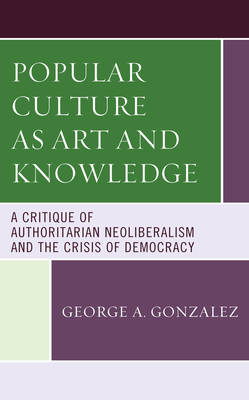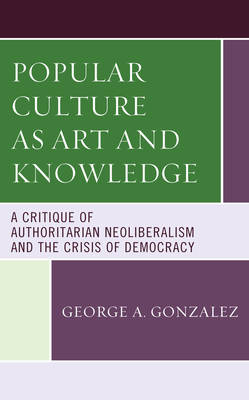
En raison d'une grêve chez bpost, votre commande pourrait être retardée. Vous avez besoin d’un livre rapidement ? Nos magasins vous accueillent à bras ouverts !
- Retrait gratuit dans votre magasin Club
- 7.000.000 titres dans notre catalogue
- Payer en toute sécurité
- Toujours un magasin près de chez vous
En raison de la grêve chez bpost, votre commande pourrait être retardée. Vous avez besoin d’un livre rapidement ? Nos magasins vous accueillent à bras ouverts !
- Retrait gratuit dans votre magasin Club
- 7.000.0000 titres dans notre catalogue
- Payer en toute sécurité
- Toujours un magasin près de chez vous
Popular Culture as Art and Knowledge
A Critique of Authoritarian Neoliberalism and the Crisis of Democracy
George A Gonzalez
Livre broché | Anglais
67,95 €
+ 135 points
Format
Description
To adjudicate between continental and analytic philosophy this book looks at the Star Trek television series, as well as Nazi cinema. Popular culture is germane to philosophy and contemporary politics because television creators attract viewers by conveying authentic philosophical and political motifs.
Spécifications
Parties prenantes
- Auteur(s) :
- Editeur:
Contenu
- Nombre de pages :
- 130
- Langue:
- Anglais
Caractéristiques
- EAN:
- 9781498589796
- Date de parution :
- 21-03-23
- Format:
- Livre broché
- Format numérique:
- Trade paperback (VS)
- Dimensions :
- 152 mm x 229 mm
- Poids :
- 199 g

Les avis
Nous publions uniquement les avis qui respectent les conditions requises. Consultez nos conditions pour les avis.






